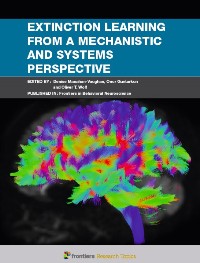Die DFG rÄt: WeiterfÖrderung!
Der Senat der Deutschen Forschungsgemeinschaft (DFG) hat auf seiner Sitzung im November 2013 die finanzielle Unterstützung der an den Universitäten Bochum, Duisburg-Essen und Marburg ansässigen Forschergruppe „Extinction Learning: Behavioural, Neural and Clinical Mechanisms“ für weitere drei Jahre beschlossen.
Die Forschergruppe beschäftigt sich mit den neuronalen Grundlagen des Extinktionslernens. Dieser Lernprozess beschreibt einen Vorgang, bei dem eine ursprünglich erlernte Information nicht mehr gültig ist; entsprechend muss der Lernende umdenken und sein Verhalten an die neuen Gegebenheiten anpassen. Obwohl Extinktionslernen erstmals bereits vor hundert Jahren von dem russischen Physiologen Iwan Pawlow beschrieben wurde, sind viele Aspekte dieses Phänomens noch ungeklärt. Ein detailliertes Verständnis des Extinktionslernens ist aber für die Behandlung von Angststörungen und Drogenmissbrauch von zentraler Bedeutung – so stützen sich beispielsweise gerade psychotherapeutische Ansätze für die Behandlung von Phobien auf Erkenntnisse der Extinktionsforschung.
Die Arbeit der Forschergruppe wird einen großen Beitrag zur Klärung der Psychologie sowie der neuronalen Grundlagen des Extinktionslernens leisten. Die Bandbreite der neun geförderten Projekte reicht von der tier- und humanexperimentellen Grundlagenforschung bis hin zu klinischen Anwendungen im Bereich der Angststörungen, um so die möglichst schnelle Umsetzung grundlagenwissenschaftlicher Erkenntnisse zu therapeutischen Interventionen zu ermöglichen.
DFG approves 3-year extension of funding for research unit on extinction learning
The german research foundation (DFG) has recently approved funding of the research unit "Extinction Learning: behavioral, neural, and clinical mechanisms", encompassing workgroups at the Universities of Bochum, Duisburg-Essen, and Marburg.
Extinction learning is a basic behavioral phenomenon in which an organism learns that two events which used to occur jointly have ceased doing so. Unlike acquisition, i.e. original learning, extinction is highly context-specific, which is one of the many indications that extinction is not just "unlearning" but constitutes a novel learning process distinct from original acquisition. Although extinction was first described more than 100 years ago by Russian physiologist Ivan Pavlov, many aspects of this phenomenon are still poorly understood. This is unfortunate, given that theories on the development and treatment of psychiatric disorders in part rely on extinction - e.g. psychotherapeutic interventions for phobias or psychological treatment of drug abuse.
In the next three years, the research unit is expected to make significant contributions to our understanding of the neural and behavioral mechanisms of extinction learning. The scope of the projects within the unit ranges from basic research in animal models and humans to clinical applications in the treatment of phobias, enabling efficient transfer of insight gained from basic research to outpatients seeking treatment for anxiety disorders.









